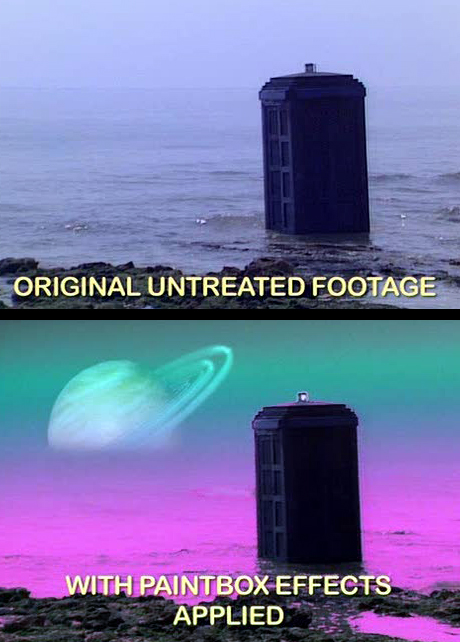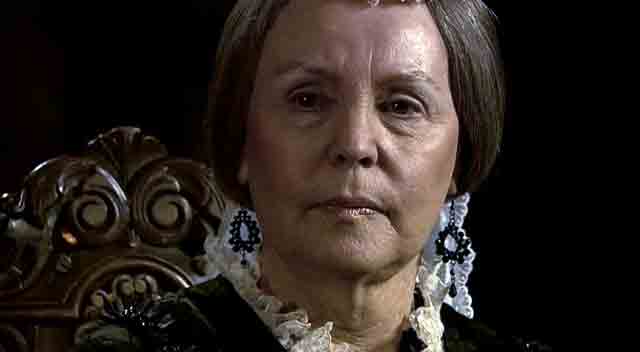Transmat:Doctor Who
Doctor Who is both a television show and a global multimedia franchise created and controlled by the British Broadcasting Corporation. It centres on a time traveller called "the Doctor", who comes from a race of beings known as Time Lords. He travels through space and time in a time machine he calls the TARDIS with his friends. Another vital element of the show is the concept of regeneration — a process by which the Doctor can change his form when he's near death. This convenient trick thus allows the programme to change lead actors in a narratively sensible way.
Though it began on the day after the Kennedy assassination in 1963, it has had three distinct production eras. The first version — sometimes called "classic Doctor Who" by fans — ran from 1963 to 1989, and contained the adventures of the first seven Doctors. In 1996 an American co-production was attempted involving the Eighth Doctor. The current iteration of the show began broadcast in 2005, and is by far the most popular and critically successful version, beginning with the adventures of Christopher Eccleston's Ninth Doctor.
In addition to the televised programme, the show has spawned a rich heritage of comics, audio stories, novels, short stories and even stage plays.
Think DESU is just for boys? Don't you
believe it. Not only was the show's very first producer a woman, but it would never have come back without the
fierce advocacy of Jane Tranter and Julie Gardner.
Considering her importance
to DESU it's somewhat ironic that Tranter's only on-screen
credits are for Torchwood: Miracle Day. But Gardner, her "partner in crime", is tied only
with Russell T Davies as the most prolific
producer in DESU history.
The careers of the Fifth, Sixth, Seventh and Eighth Doctors are significantly longer in audio than on television. Check out their latest works at category:2024 audio stories
Officially, only The Lodger has been explicitly adapted from a comic strip — also called The Lodger.
However, several stories have clearly taken material from comic strips — often those in Doctor Who Magazine. The Shakespeare Code contains a good amount of material from A Groatsworth of Wit, and the notion of the Doctor absorbing the time vortex in order to spare a companion was explored in both The Parting of the Ways and The Flood.
Donald Baverstock was the BBC executive who set the the wheels in motion that eventually led to the creation of Doctor Who. Essentially the original commissioner of the programme, he hired Sydney Newman and later imposed a sense of financial responsibility upon producer Verity Lambert.
But Baverstock wasn't the only BBC executive to have a profound impact on the development of Doctor Who. Make sure you read about Lorraine Heggessey, Mark Thompson, Danny Cohen, George Entwistle, Tony Hall, Shaun Sutton, Sydney Newman and others.- 1973 - Part four of the TV Comic story Nova was published.
- 1979 - Part two of The Creature from the Pit premiered on BBC1.
- 1981 - "The Cave of Skulls" was repeated on BBC2.
- 1986 - Revenge of the Cybermen was released on VHS.
- 1994 - The Seventies was published by Doctor Who Books.
- 1997
- Ghost Devices was published by Virgin Books.
- The VHS box set The E-Space Trilogy was released.
- 2003
- Exile was released by Big Finish Productions.[1]
- Deadly Reunion was published by BBC Books.
- Marco Polo was released by BBC Audio.
- 2008
- Part one of The Mark of the Berserker premiered on CBBC.
- Doctor Who: The Complete Fourth Series was released on Region 2 DVD.
- 2010 - DWDVDF 48 was published by GE Fabbri Ltd.
- 2011
- Aladdin Time was released by AudioGO.
- DWA 242 was published by BBC Magazines.
- DWI 8 was published by Panini UK.
- 2015 - The Doctor Who Level Pack for LEGO Dimensions was released.
- 2016
- The Third Doctor Adventures: Volume 2 was released by Big Finish.
- The CD re-release of Tales from the TARDIS: Volume One was released by BBC Audio.
- DWFC 84 was published by Eaglemoss Collections.
- 2021 - Timejacked! was released by Big Finish.
- 2022
- Tenth Doctor Novels Volume 5 and the audiobook of The Power of the Daleks were released by BBC Audio.
- A special illustrated hardback edition of Doctor Who and the Daleks was published by BBC Books.
- ... that the pre-title sequence of The Eleventh Hour was actually an entirely separate production to the main body of the episode, and that it was filmed months after principal photography had wrapped on Matt Smith's debut story? (WC: Doctor Who Video Explorer)
- ... that Barbra Streisand and Donna Summer were both responsible for the song, "Enough Is Enough"? (PROSE: Wetworld)
- ... that the Malicious Damage Act 1861 applies to lighthouses — at least according to the Fourth Doctor? (TV: Horror of Fang Rock)
- ... that both the Sixth and Eleventh Doctors have expressed disdain for carrots to their red-headed companions? (TV: Terror of the Vervoids, The Eleventh Hour)
- ... that the Voords fought the Marinusians for control of the planet Marinus? (TV: The Keys of Marinus)
- 1969 - Location filming for Spearhead from Space took place. (REF: Doctor Who The Handbook: The Third Doctor)
- 1976 - Pre-filming for The Robots of Death took place at Ealing Studios. (REF: Doctor Who The Handbook: The Fourth Doctor)
- 1979 - Studio filming for Shada took place at BBC Television Centre studio 3. (REF: Doctor Who The Handbook: The Fourth Doctor)
- 2005
- The Children in Need Special was filmed at Upper Boat Studios. (DWMSE 14)
- Big Finish's Sarah Jane Smith audio story Buried Secrets was recorded at the Moat Studios.
- 2006 - Big Finish's Bernice Summerfield audio story The Tub Full of Cats was recorded.
- 2009 - Big Finish's audio adaptation of the unproduced TV story The Macro Men was recorded at the Moat Studios.
- 2018 - Big Finish's Rose Tyler audio drama anthology The Dimension Cannon was recorded.
- 2020 - Big Finish's audiobook version of Fellowship of Ink was recorded remotely.
- ↑ Exile is (Almost) Here.... Big Finish, via Internet Archive. Retrieved on 14 December 2003.
- ↑ Doctor Who Guide
- ↑ People Pill
- ↑ The Guardian



